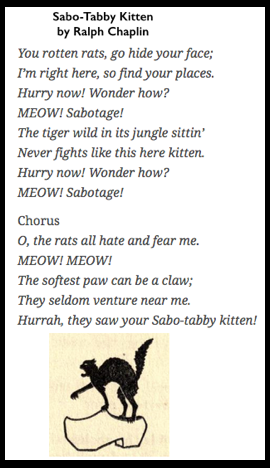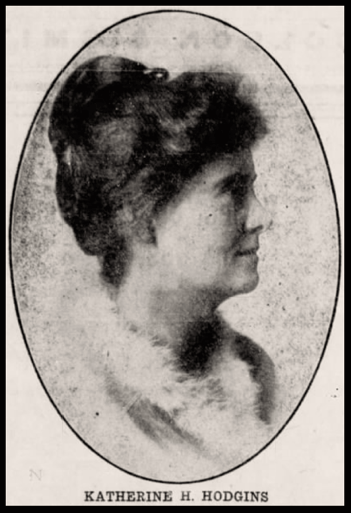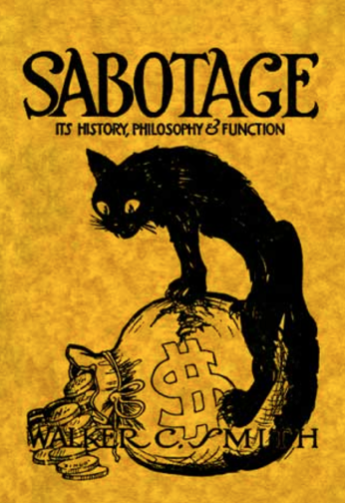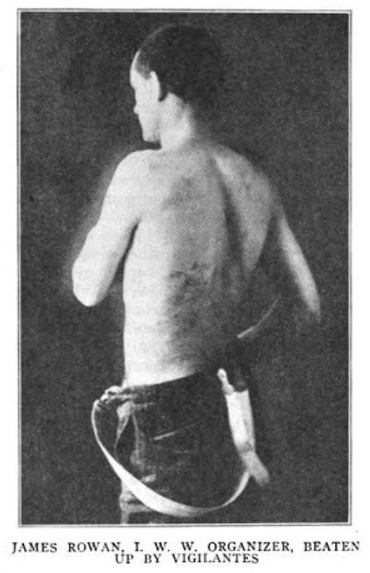O, the rats all hate and fear me.
MEOW! MEOW!
The softest paw can be a claw;
They seldom venture near me,
Hurrah, they saw your Sabo-Tabby Kitten!
-Ralph Chaplin
Hellraisers Journal, Friday March 23, 1917
Seattle Tracy Trial – Dramatic Reading Provided by Prosecutor

In an article in Thursday’s edition of the The Northwest Worker, Katherine H. Hodgins provides further details on the reading of I. W. W. literature into the trial record and a closer look at the testimony of Mayor Merrill of Everett.
It seems that Prosecutor Cooley thought the courtroom a stage when he recited the lyrics to Ralph Chaplin’s song about a Sabo-Tabby Kitten:
Friday morning was enacted a scene that was worth any person’s time and money to have seen and heard, when Mr. Cooley read from the I. W. W. song-book. Imagine, if you can, a white-haired man, rather sever in countenance, reading with the utmost gravity to a solemn-faced jury, the songs “Casey Jones,” “Tabby Kitten,” etc. Mr. Cooley read them in an interesting and expressive manner which added color to the unique performance. Especially was this true when he “meowed” at the end of each chorus of one of the songs, exclaiming “sabotage” in the most fearful and dramatic manner of which he was capable.
On a more serious note, Mayor Merrill was confronted by the young I. W. W. member whose fingers the Mayor had crushed:
The most dramatic incident of the trial so far, was the introduction of Louis Skaroff, an unusually interesting, bright-faced Jewish lad, who had been arrested and detained at the city jail in Everett after having been arrested on the afternoon of Nov. 5th while speaking on the street. It has been alleged that this lad had been maltreated by officials at the city jail late one night, and that at the termination of a series of kickings and beatings, during which he sustained bruises about the head and body inflicted by the mayor, assisted by another official, his fingers were placed under the foot of an iron bed by the mayor, while he, with the other worthy, jumped upon the middle of the bed, thus crushing and bruising the poor lad’s hand. When confronted by Skaroff, Merrill denied having ever seen him. Again he refreshed his memory and admitted that he had seen him, but denied any connection with atrocity.
From The Northwest Worker of March 22, 1917:
MAYOR MERRILL OF EVERETT GETS
GRUELLING AT TRIAL
—–PROSECUTION FAILS IN ATTEMPT TO INTRODUCE ONLY
ONE SIDE OF THE WORKERS CASE TO JURY.
CLASS WAR IN THE LIME LIGHT
—–(By Katherine H. Hodgins)
The class-war phase of the trial for murder of Thomas Tracy becomes more and more apparent as the trial proceeds. In fact, there is little else that is apparent. It is purely and simply the presentation of a collection of data relative to the methods and means resorted to by the employing class to maintain their despotism on one hand, and the tactics used by certain portions of the exploited class to combat this despotism, on the other hand. Every other phase of the situation sinks into insignificance.
The first step on the part of the prosecution towards establishing a basis for a case of “constructive crime” was Wednesday, March 14th, when the file of the Industrial Worker, the organ of the Pacific division of the Industrial Workers, was introduced as evidence. Permission was asked to read portions of certain articles contained therein to prove their contention that the I. W. W. advocated certain violent doctrines, the carrying out of which resulted in the crime of which the prisoner was accused. After a long discussion, the court ruled that no disjointed portion of any article might be read, but the whole of it, if any.
Then were offered a number of pamphlets, among them “Sabotage” by Walker T. [C.] Smith, a pamphlet by the same title by Elizabeth Gurley Flynn, “I. W. W. Tactics and Methods,” by Haywood, some quotations from Jack London, the Preamble and the official song book.
It having been conceded that it would be quite unreasonable to offer the entire contents of these books as evidence, permission was granted the prosecution to read such portions of them as was deemed pertinent to the point under discussion. Thereupon Mr. Black read to the jury paragraphs selected throughout the pamphlet by Walker Smith, omitting religiously any word, phrase or sentence that would in any way qualify or explain the bald statements contained in the disjointed sentences and paragraphs which he had chosen. M. Black read in a dull, uninteresting tone, pronouncing word “sabotage” (sab-it-ige.) Upon the conclusion of the reading the judge asked to see the pamphlet and instantly discovered the extent to which the paragraphs had been mutilated in the pernicious endeavor to create prejudice. For example the sentence, “Note this important fact, however, sabotage does not seek the taking of human life,” had been omitted from the middle of the page. This being the precise point that they were attempting to prove by the reading from the book, it naturally follows that the entire meaning was instantly changed.
It was thereupon ruled that the defense be given the privilege of reading such portions of the book as would, to use the judge’s expression, “take the sting out of what had been read,” by the prosecution. AND IT DID. Mr. Vanderveer read paragraphs dealing with the vicious and cruel methods employed to beat the workers into subjection, paragraphs dealing with child slavery, the cause and effect of militarism, and numerous other phases of the class war that made the accusation of “violence” on the part of the oppressed, look rather pale.
Friday morning was enacted a scene that was worth any person’s time and money to have seen and heard, when Mr. Cooley read from the I. W. W. song-book. Imagine, if you can, a white-haired man, rather sever in countenance, reading with the utmost gravity to a solemn-faced jury, the songs “Casey Jones,” “Tabby Kitten,” etc. Mr. Cooley read them in an interesting and expressive manner which added color to the unique performance. Especially was this true when he “meowed” at the end of each chorus of one of the songs, exclaiming “sabotage” in the most fearful and dramatic manner of which he was capable.
One of the most noticeable characteristics of most of the witnesses thus far examined, the peculiar loss of memory regarding important developments of the Everett war; wherein high-handed, brutal methods were employed by the deputies. In striking contrast to this failure of memory is the vivid and exact recollection of unimportant details, particularly those that would seem to offer an excuse for these brutalities. For example, Mr. Merrill, mayor of Everett, remembered receiving a letter from Herbert Mahler, secretary of the Seattle organization of the I. W. W., in which he outlined the situation in Everett, stating that he was enclosing a copy of a communication addressed to Governor Lister, asking that the state militia be called out to suppress the violence of the deputies in Everett. Mr. Merrill swore that he had handed the letter in question to Mr. Kelly, and did not remember the contents of it. Being confronted with the letter which he himself, had sent in reply to the communication, he refreshed his memory and acknowledged his own signature. But he had not read the copy of the communication sent the governor asking for the state militia. Did not remember for a certainty anything about it, thought he MIGHT HAVE handed it to Mr. Kelly.
A matter so trifling as the request for the calling out of the state militia, to protect people from brutal beatings-up and other inhuman atrocities,-a request that is not made but seldom in the history of any state, did not interest the mayor of the city sufficiently to warrant the reading, or even the notice of it.
In striking contrast to the other witnesses was the manner and method of giving testimony of the two members of the I. W. W., Herbert Mahler and J. A. MacDonald, editor of the Industrial Worker. From Mahler it was learned that the organization was conducted in a most orderly and systematic manner, having a headquarters in Chicago with various departments and branches throughout the country, its officials and committees being elected by vote of the membership. Mahler has a most frank, open personality and would be about the last person one would suspect of having any dire purpose in belonging to an organization or who had any secret that he feared to disclose in an unguarded moment. MacDonald likewise responded readily and cheerfully to all questions pertaining to the ownership, management and organization of the paper of which he is editor.
The most dramatic incident of the trial so far, was the introduction of Louis Skaroff, an unusually interesting, bright-faced Jewish lad, who had been arrested and detained at the city jail in Everett after having been arrested on the afternoon of Nov. 5th while speaking on the street. It has been alleged that this lad had been maltreated by officials at the city jail late one night, and that at the termination of a series of kickings and beatings, during which he sustained bruises about the head and body inflicted by the mayor, assisted by another official, his fingers were placed under the foot of an iron bed by the mayor, while he, with the other worthy, jumped upon the middle of the bed, thus crushing and bruising the poor lad’s hand. When confronted by Skaroff, Merrill denied having ever seen him. Again he refreshed his memory and admitted that he had seen him, but denied any connection with atrocity.
At the same time there was introduced a large-sized photograph showing the mutilated back of Rowan, who was one of the many victims of the brutalities common in and about Everett during the maintenance of “law and order” by the citizen deputies. Again Merrill had to refresh his memory as before in order to recall having heard of the incident relative to Rowan’s beating up.
Mr. Merrill, while testifying, sits motionless and dull under the rapid fire of cross-examination by Attorney Vanderveer. He slumps in his seat like an inert mass of soft matter, his face an extensive blank, his memory all but gone. O, that the citizens of Everett might see their mayor in the witness chair!
Several of the witnesses so far have been wage slaves most, and in some instances All of their lives, and show the usual evidences of hard labor. At least two of them have testified that they were at one time members of organized labor. Certain it is that they have shared the benefits derived from the struggles and sufferings of organized labor in its effort to improve working conditions. Yet they view this entire situation from the standpoint of their exploiters. If there is anything more pathetic than that of a person living in the commonplace, poverty stricken condition of the average wage earner and having the viewpoint of a Rockefeller, it would be difficult to find.
One of the points sought persistently by the prosecution is to establish proof that the I. W. W. as an organization, countenances lawlessness. This attempt continues day after day. In reply to this, evidence is produced from the files of their organ, the Industrial Worker, showing that column after column has been taken up denouncing brutalities and lawlessness of various kinds. All of the witnesses thus far examined have stated distinctly that not once has a member of the organization been known to resist arrest throughout all of the difficulty in Everett. Taking into consideration the manner in which some of the men have been treated, this would almost seem like obeying literally the admonition to turn the other cheek.
Another point that has been brought out many times is that while these individuals were arrested ostensibly for street speaking, that they were booked at the jail on charges of vagrancy, notwithstanding the fact that many of them had money on their persons when they were searched.
There is so much evidence yet to be taken that it is difficult to tell with any degree of certainty just how long the trial will last. But in all probability it will be of long duration and that it will become more interesting as it proceeds.
———-
[Photographs added.]
SOURCE
The Northwest Worker
(Everett, Washington)
-Mar 22, 1917
https://www.newspapers.com/image/64453951/
IMAGES
Sabo-Tabby Kitten by Ralph Chaplin
https://weneverforget.org/hellraisers-journal-elizabeth-gurley-flynn-and-walker-c-smith-in-courtroom-as-sabotage-books-read-at-tracy-trial/
https://archive.org/stream/whenleavescomeou00chapiala#page/28/mode/2up
WA Socialist, Katherine H Hodgins, NW Wkr Nov 25, 1915
https://www.newspapers.com/image/64447366/
Sabotage by Walker C Smith, 1913
https://iww.org/history/library/WCSmith/sabotage
Everett Massacre, James Rowan beaten, ISR Dec 1916
https://books.google.com/books/reader?id=SVRIAAAAYAAJ&printsec=frontcover&output=reader&source=gbs_atb&pg=GBS.PA345
See also:
Katherine H. Hodgins
http://www.herhatwasinthering.org/biography.php?id=6664
The Everett Massacre
A History of the Class Struggle in the Lumber Industry
-by Walker C. Smith
IWW, 1918
https://catalog.hathitrust.org/Record/001106557
~~~~~~~~~~~~~~~~~~~~~~~~~~~~~~~~~~~~~~~~~~~~~



